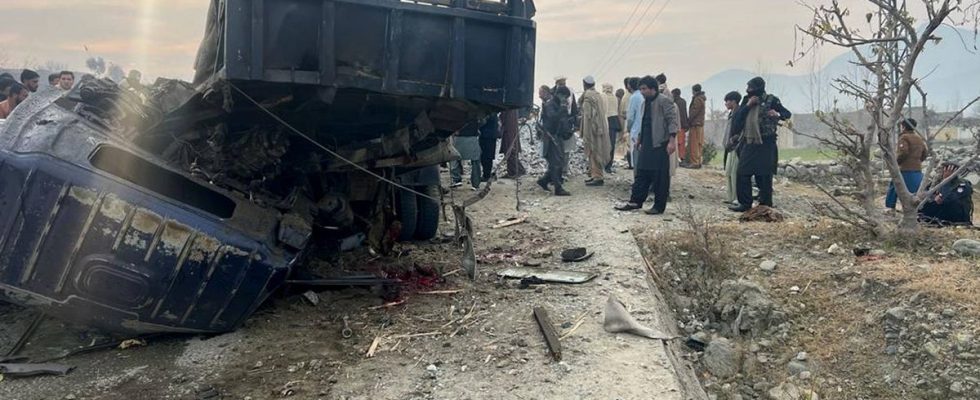Distrust of vaccines can take various forms… If in France, anti-vaxxers complained of the “health dictatorship” during the Covid-19 pandemic, in Pakistan the polio vaccination teams are regularly victims of attacks. On Monday, five police officers responsible for protecting vaccinators were killed in a bomb explosion.
The country, alone in the world with Afghanistan not to have eradicated poliomyelitis, has launched a new vaccination campaign, hoping to protect 44 million children. But it faces strong resistance, with care teams and their companions regularly being the target of attacks.
From Bin Laden to attacks on vaccine teams
In early December, a police officer who was protecting vaccinators was shot dead by armed men. In August, two members of the security forces lost their lives in Baluchistan, a cross-border province of Afghanistan. The Pakistani Taliban Tehreek-e-Taliban Pakistan (TTP) have repeatedly claimed responsibility for these attacks, including Monday’s.
“For around ten years, Islamist militants have targeted vaccine teams in Pakistan and Afghanistan,” underlines Olivier Guillard, director of research on Asia at the Institute of International and Strategic Relations (IRIS). And precisely, thirteen years ago, in 2011, the CIA organized a fake vaccination campaign in Abbottabad, Pakistan, in order to locate Osama bin Laden with certainty. “It caused a lot of confusion at the time. We were regularly asked if the WHO was involved – obviously not, but that was more than ten years ago,” notes Oliver Rosenbauer, spokesperson for polio eradication at the WHO.
Between conspiracy theories and acceptance of the injection
Since then, conspiracy theories have abounded: the vaccine would be injected to sterilize Muslim children or would contain pork fat, making it prohibited by Islam. “These vaccinations take place at home. Sometimes, in regions that are particularly resistant to state authority, the population considers that security personnel are made up of informants, sent to spy on them,” adds Olivier Guillard. “Acceptance of the vaccine is much greater in Pakistan than in Switzerland,” says Oliver Rosenbauer. Parental resistance is less than 1.5%, which means that less than 1.5% of parents refuse to allow their children to be vaccinated. »
However, there are regional disparities. A demographic study conducted in 2016 in Peshawar, capital of Khyber Pakhtunkhwa province, shows that 79% of participants opposed vaccinating their children, convinced that the product contained ingredients prohibited by Islam. “On this ground, radical Islamist or terrorist entities like the TTP are grafted, which considers that every opportunity to strike the security services of the State is good to take,” affirms Olivier Guillard who adds: “these are easy targets which travel everywhere in the country and, often, the security arrangements that accompany them are very light. »
An “extremely difficult” task
“There is resistance in the border regions of Afghanistan which are sparsely populated, particularly resistant to the State and rural,” illustrates the researcher. If Oliver Rosenbauer admits this resistance, the WHO spokesperson insists: “If some people use this situation to attack the government, our biggest problem is to overcome other difficulties: logistical, operational, security. » “It’s an extremely difficult task,” says Olivier Guillard. It is a country of 240 million inhabitants and a vaccination campaign which aims to vaccinate 40 million children. »
In 2022, Pakistan was devastated by historic floods that killed at least 1,700 people and inundated a third of the country. “To vaccinate a child, you first have to find them. However, it is difficult to access all homes because of insecurity but also for environmental reasons. There are a lot of population movements across the country,” explains the WHO spokesperson. Poliomyelitis is contagious and can cause paralysis, generally of the lower limbs but sometimes affecting the respiratory system. Since the 1980s, organizations such as the WHO and UNICEF have been trying to eradicate this disease on a global scale. Pakistan constitutes, with Afghanistan, the last source of the disease. But with only 20 cases recorded in 2022 compared to 3.4 million suspected cases of malariathe world’s public health priorities seem far removed from those of Pakistanis.

